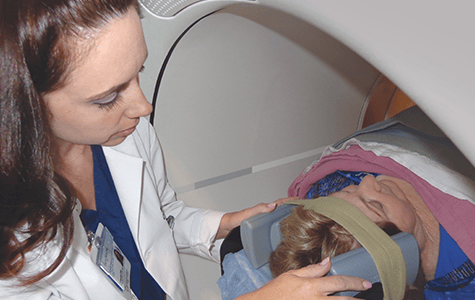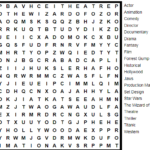 Looking for Clues to Explain Memory Loss
Looking for Clues to Explain Memory Loss
Positron Emission Tomography (PET) imaging or PET scan is a tool that physicians use to diagnose certain diseases. The PET scan demonstrates the function of the brain by using small amounts of radioactive compounds, a brain scan, and computer.
By measuring important body functions, such as blood flow, oxygen and glucose (sugar) use, this state-of-the-art technology can help clinicians provide a more accurate diagnosis.
 A PET scan is often used to help distinguish the different causes of memory loss, such as Alzheimer’s disease or Frontotemporal dementia. Amyloid PET imaging, a special type of PET scan looking at amyloid plaque – the clumped proteins in the brain associated with Alzheimer’s disease- is used to specifically diagnose Alzheimer’s.
A PET scan is often used to help distinguish the different causes of memory loss, such as Alzheimer’s disease or Frontotemporal dementia. Amyloid PET imaging, a special type of PET scan looking at amyloid plaque – the clumped proteins in the brain associated with Alzheimer’s disease- is used to specifically diagnose Alzheimer’s.
What to Expect
Elaine Pienschke, CNMT, PET, NMTCB(CT), RT(N)(CT), Clinical Manager of Imaging at Cleveland Clinic Lou Ruvo Center for Brain Health says, “A brain PET/CT scan is a painless procedure, with no side effects. After fasting overnight, you are given an injection of a very small dose of a radioactive chemical, or radiotracer. You must then wait 30- 60 minutes to allow the tracer to become active in the brain. Once active, you lie on a table that passes slowly through the scanner.”
Ms. Pienschke, recommends:
The day before a scan:
- Eat a high-protein/low-carbohydrate dinner
- Drink at least three to five glasses of water
- Continue all medications unless notified by your doctor
- Consult a physician if you have questions
The day of your scan:
- Drink at least three glasses of water
- No food or drink, other than water, after midnight unless given other instructions
- Wear comfortable clothing free of metal (e.g., snaps and zippers). Workout clothes are ideal.
“After the scan, you may resume your normal activities. The radiotracer that was injected will naturally be eliminated from your body,” says Ms. Pienschke.
Use in Clinical Trials
Amyloid PET imaging is now being used in some Alzheimer’s clinical trials to help measure the effect of experimental treatments on amyloid plaque. If these treatments can reduce or eliminate amyloid this is likely to indicate these new medicines work. As of now, this special type of PET scan is not covered by insurance or Medicare but can often be free of charge for people participating in a clinical trial.
To learn more about clinical trials, take a look at https://healthybrains.org/clinical-trials/. If you have questions about participating in a clinical trial, email us at [email protected].









